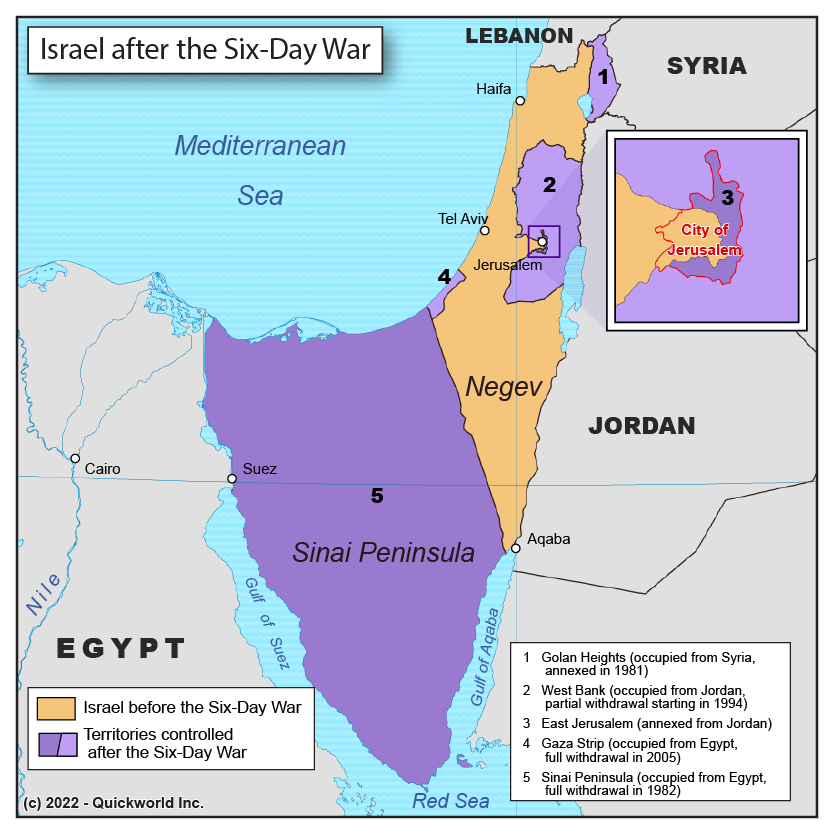The Six-Day War between the State of Israel and its Arab neighbours remains one of the major events of the Post WW2 historical period. The result of that war profoundly changed the Middle East in ways that are still felt half a century later.
The reasons for which this war is notorious are numerous. First, obviously, its brevity. The war actually lasted six days, and it was a real war, with the armed forces of six countries directly involved. Second, the audacity it took for the party with the smaller army to be so dominant in reality. Finally, for its territorial outcome, with Israel taking control of territories held by three of its neighbours.
Some of those territories were returned, some were annexed unilaterally, others are still in disputed status as of 2022. The territories that compose Palestine, heir to the initial UNO partition plan of 1948, have been a hybrid of annexed lands (East Jerusalem), self-rule under Israeli blockade (Gaza), and a patchwork of autonomous Palestinian areas, Israeli settlements and lands under the control of the Israeli Defence Force.
The Six-Day War


